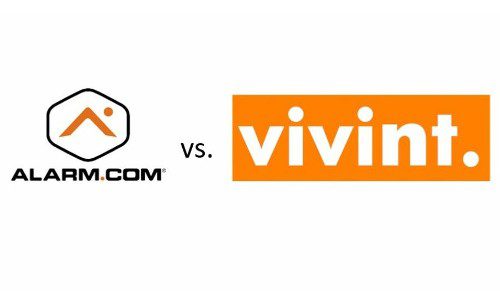I was hired to optimize Monster’s (cables not jobs) website more than a decade ago—before SEO was cool. All the popular SEO services and software you know (and hopefully use) today were all in their relative infancy, so keyword research was something of its own unique challenge, even then.
Monster hired me because I was a writer, not because I knew jack about Search Engine Optimization (SEO). Then again, not many people did back then. It was the Wild West of SEO, and the work felt largely like an experiment.
I learned a lot, including such tedious items as what a canonical tag is and why you should use dashes instead of underscores in a URL. I ‘had words’ (and not of the keyword variety) with webmasters, tenaciously hanging onto every little SEO trick in the book for dear life, the success or demise of the company hanging in the balance.
All these years later I’ve softened a bit with experience and no longer do battle with unsuspecting web people. Of course, the world of SEO changes as fast as you can say ‘algorithm’, so the education is never-ending.

What Happens When Crime Prevention Meets AI (And Why We Can’t Rely on AI Alone)
In an era where crime continues to evolve, relying solely on AI-based solutions proves insufficient in preventing sophisticated threats and false alarms. The webinar will emphasize the paramount importance of human judgment and intuition in tandem with AI technology to create a truly complete security solution. Our session will explore how Deep Sentinel’s revolutionary approach combines the best of both worlds—advanced artificial intelligence and the presence of highly trained human guards. Together, these elements create an unparalleled level of protection for residential and commercial properties alike. Join our panel of esteemed lighting experts that will dive into why it’s time for integrators to rethink their role in the outdoor lighting industry. Register Now!The good news is, SEO advice is now overwhelmingly available. What’s lacking, however, is advice on devising a method for selecting keywords.
Sure, there is general advice on choosing high-volume, low-competition keywords, ‘technical’ SEO, keyword cannibalization (really less violent than it sounds), and how to write an effective meta description, but how do you actually funnel billions of words and gazillions of phrases down to that ultra-curated list of the few, the proud, the chosen ones that will catapult your business straight into the stratosphere?
In essence, your keyword strategy is a lot like how Michelangelo sculpted. When asked how he’d carve an elephant, he said “I would take a large piece of stone and take away everything that was not the elephant.”
With these 5 steps, you too be a master sculptor of keywords, slashing away what isn’t useful and polishing those keyword gems that remain.
The 5 Steps to Picking Some Stellar Keywords for Your Company
Here are some methods that I, in my freelance career, and we at RISE have found successful to trim your keywords down to a manageable list that can actually move the proverbial needle.
1. Scope Out the Competition
First, Look at What Your Competitors Are Doing. What keywords do your competitors rank for? Where is their overlap between yours and competing domains? Doing some competitive analysis will help you compete! Creating a spreadsheet with different competitors’ keywords on different tabs is a great place to start. Once you have these terms at the ready, filter out any proprietary keywords specific to your competitors, like those phrases or keywords that include the brand’s name or popular model numbers.
2. Remove Any Keywords That Will Be Too Challenging
Second, filter out any keywords that you have an unlikely chance of ranking for. Sort by difficulty and remove the overly difficult-to-rank-for keywords. Below 50%, you might have a chance, above that, and you’re looking at a lot of legwork to rank, such as asking for backlinks to your page from high-authority sources.

3. Ditch the Keywords with Low Search Volume
Third, remove keywords with low search volume. You want all this SEO to be worth it, so opt for the highest search volume of the keywords that remain. For example, is it worth it to you to optimize for a keyword that only has 10 search hits a month? Not really. Unless, perhaps, you offer a very specialized, extremely niche product with crazy margins. One exception here is for emerging technology.
If you are on the cusp of something big, name it. Coin that term. Not only will you be a thought leader in the industry, if you optimize for that term, you’ll “land grab” on search engines before the keyword—and the space—is crowded.
4. Narrow Down Your Keyword’s Intent
Fourth, hone the list further. Scour your remaining keywords and remove those that are misspelled, are too broad, or are irrelevant. For example, for the CE Pro reader, you might be better optimizing for “AV Receiver” or “Sony AV Receiver” than just “Receiver.” Receiver is way too broad and you’ll be thrown in with all kinds of receivers. Even wide receivers!
5. Make Sure It Sounds Natural
Finally, do a sweep of the remaining words. If a keyword looks unfamiliar or sounds unnatural, delete it and don’t look back. Also be careful you aren’t unwittingly competing with your keyword’s other meaning. For example, one client wanted to optimize for PoE (Power over Ethernet) and narrowly avoided competing with the macabre bard, Edgar Allen Poe.
Now that you’ve pared your keywords down to a wieldy list, you can start implementing the usual SEO best practices. (Don’t know what those are? Drop me a line at krissy@risemediastrategy.com or leave a comment below and let’s discuss.)
Note that you can do a similar whittling process for long-tail keywords or even questions. In fact, questions generated by search queries are excellent blog fodder! Search for home theater, and you’ll find that this is a fairly competitive keyword, but related questions like “How to Design a Home Theater” or “How to Design a Home Theater Room” are less so.
Finally, approach your keyword strategy with a self-renewing sense of curiosity. There is no exact science here. It takes research, legwork, and experimentation. If you’re invested in the outcome of bettering your business by increasing traffic to your site, you’ll have better results. Be consistent and stay with it, because SEO strategy is anything but one-and-done. Optimize, monitor, adjust, and succeed!

Krissy Rushing Tomlin received her start in technology journalism for residential AV way back in 1997, serving as Editor or Executive Editor for several large national magazines. Her byline has also appeared in media outlets like Wired magazine, Prosource News, TechnologyTell, and more. She made the switch to marketing alongside the march of digital publications, combining her extensive AV background and content writing skills into marketing for the audio video channels where she stands today as CEO of RISE Media Strategy.
If you enjoyed this article and want to receive more valuable industry content like this, click here to sign up for our digital newsletters!








